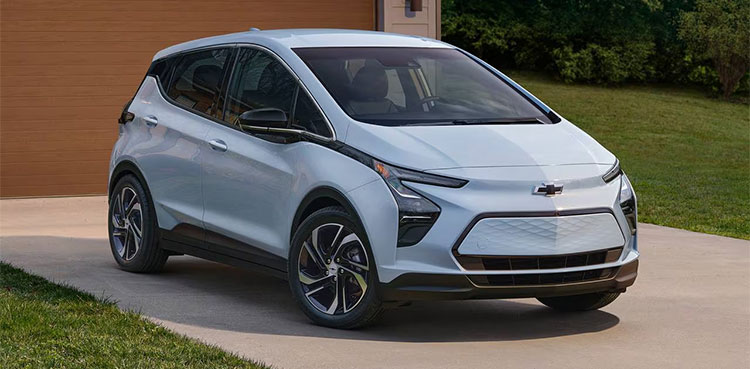
[ad_1]
General Motors is recalling the Chevrolet Bolt EV once more due to the potential improper installation of diagnostic software related to a previous battery-fire recall.
The improperly installed software might not stop the battery from overheating, which could lead to the battery pack igniting while charged to full or nearly full capacity, as stated by the National Highway Traffic Safety Administration (NHTSA). Only 88 2020-2022 Chevrolet Bolt EV hatchbacks and 19 Chevrolet Bolt EUV models are affected by this concern.
This marks the second recall regarding battery diagnostic software in Bolt EV vehicles. GM initiated a recall last July after discovering that its service system software could occasionally enable a technician to process a vehicle’s warranty claim without fully installing the necessary software.
In this instance, the recall arose from a customer complaint about a 2022 Bolt EUV that remained capped at 80% state of charge following an “evaluation period,” which is supposed to be the point where the software would restrict charging, according to GM’s recall documents. The company cites a “malfunction in the software programming tool” as the cause and has stated it is unaware of any related incidents.
Affected vehicle owners are advised to follow the same precautions as those outlined in the prior software-related recall: set the target charging level to 90%; try not to let the battery deplete below 70 miles of range; park the vehicle outside post-charging; and avoid charging it indoors overnight.
While owners await an appointment with dealers, they will need to adhere to these guidelines, and dealers will reinstall the diagnostic software at no cost. GM intends to send out owner notification letters on December 16, and owners may reach out to a dedicated Bolt EV Concierge Team at 1-833-382-4389. The reference number for this recall from GM is N242470160.
Similar to the earlier software-related recall, this situation concerns a minor fraction of GM’s extensive 2021 battery recall initiative, which ultimately affected all 140,000 Bolt EV and Bolt EUV vehicles in North America. Many owners of the earlier 2017-2019 Bolt EV models received new battery packs, resulting in increased driving range compared to what they had initially.
[ad_2]
Source link





